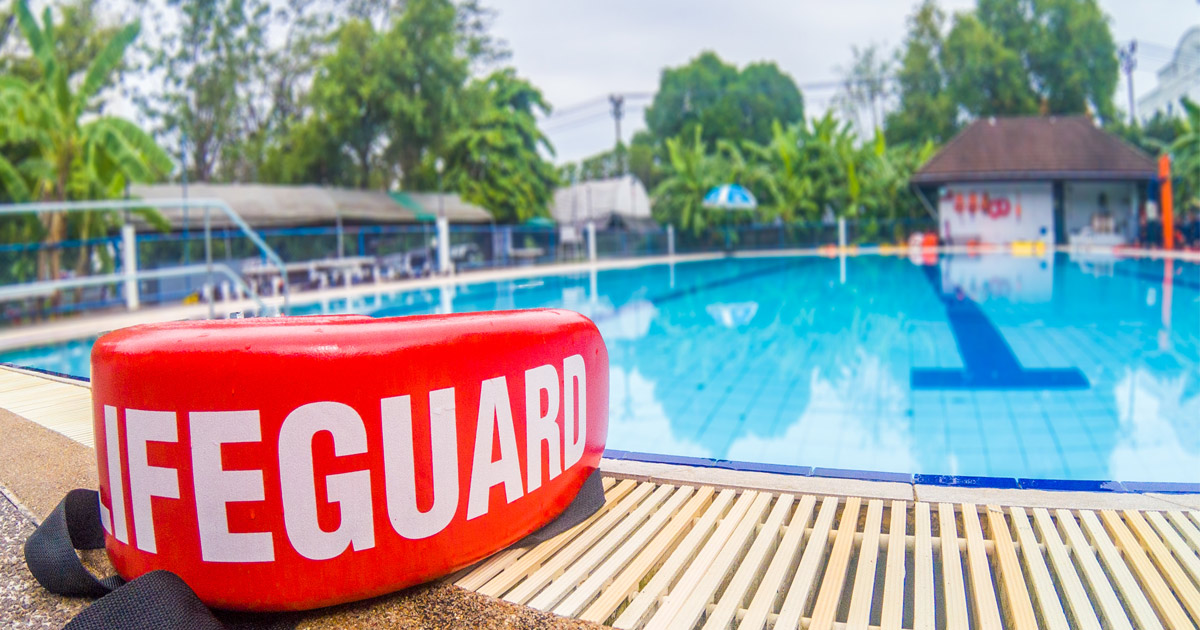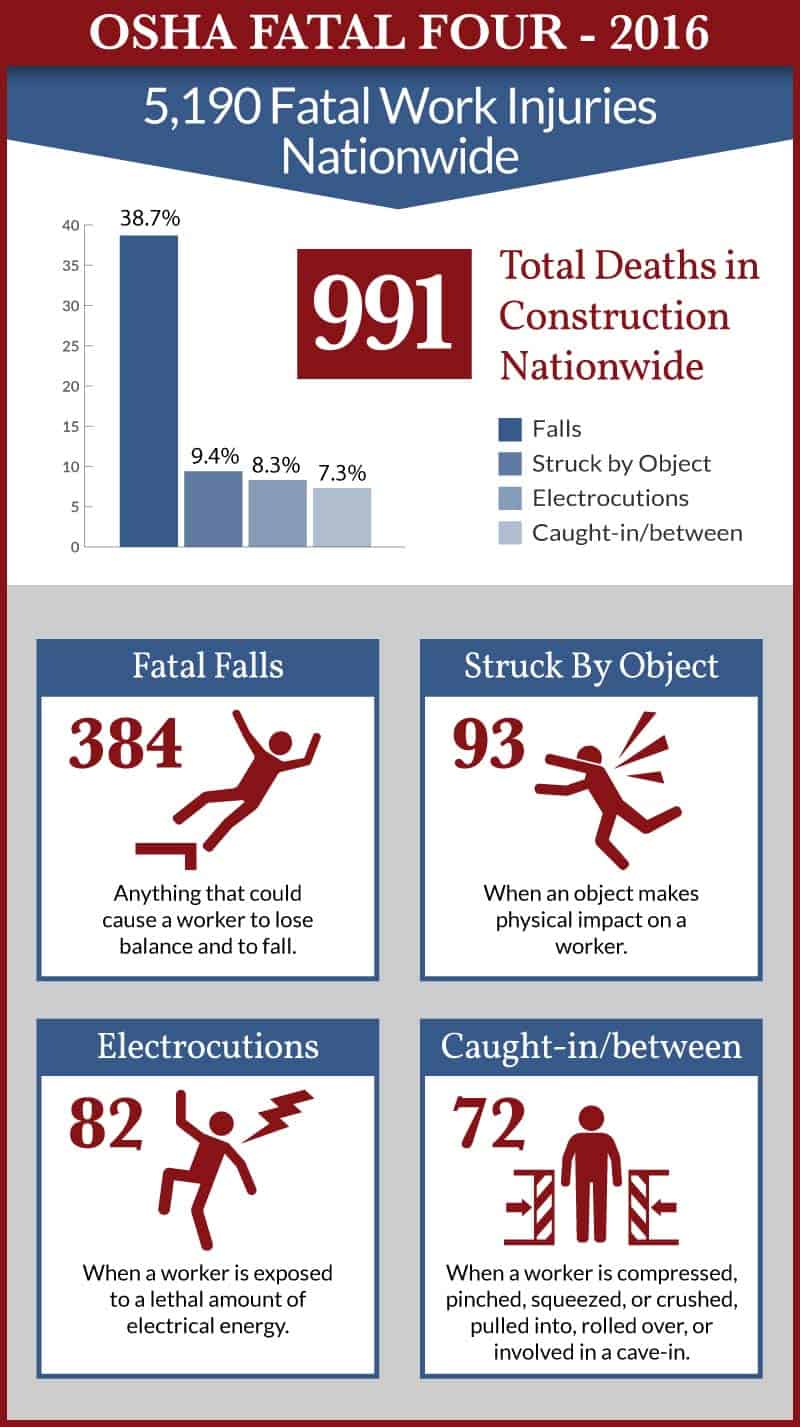Can I Receive Workers’ Compensation as an Injured Lifeguard?

It may seem that lifeguards have an easy job, one might even picture a lifeguard sitting on chair by the pool or at a lake, waterpark, or near the ocean. However, lifeguarding can be mentally and physically taxing, and it can also be risky. Every day, lifeguards across the country are called upon to protect adults and children from water-related dangers. They must set aside their own needs to help others avoid disastrous or even fatal situations. Due to the nature of the job, a lifeguard can experience a host of medical and psychological issues that might warrant Workers’ Compensation benefits, an injured lifeguard deserves compensation.
What Hazards Do Lifeguards Face at Work?
Lifeguards work in various settings, such as indoor pools at community fitness facilities and private beaches at high-end resorts. Not only do they have to be ready to jump into the water at a moment’s notice, but they must also pay attention to what is happening around them. A lifeguard’s top priority is to keep everyone safe, even if it puts them in harm’s way. Lifeguards encounter many hazards while working, including the following:
Slip and Falls: Lifeguards deal with slick surfaces, which can lead to a slip and fall accident. Pool decks are notoriously slippery, particularly when patrons spill sunscreen, beverages, or even food.
Dangerous Waters: Lifeguards that work in open, natural waters face the elements that come from above, like sudden thunderstorms. Lifeguards are also subjected to dangerous waters, such as riptides and sea animals.
Unsanitary Situations: A lifeguard may have to perform CPR or respond to a medical emergency, meaning that they come in contact with other people’s bodily fluids.
Chemicals: Lifeguards may be charged with keeping an outdoor or indoor pool clean by testing the water and adding the appropriate level of chemicals necessary.
Harassment: Lifeguards deal with the public on a regular basis. Not every person treats lifeguards with the respect that they deserve, which can take a toll on a lifeguard’s confidence, mental health, and job satisfaction.
What Types of Injuries and Illnesses are Common Among Lifeguards?
Lifeguards come in contact with many different people. They also have numerous physical and mental demands. Consequently, lifeguards frequently report many types of injuries and illnesses, such as:
Injuries from Slip and Falls Accidents
Knowing the general duties of a lifeguard, it is easy to see why slip and falls are the most common accident experienced. Slipping and falling, even from a standing height, can lead to serious bodily trauma. Bones can break quickly. Also, it is easy to sprain or strain a muscle or tendon trying to break a fall. If a lifeguard slips, a hard hit to the head can lead to a traumatic brain injury. Even a mild concussion can cause memory issues, nausea, personality changes, and other serious symptoms.
Cuts and Abrasions
Cuts and abrasions can happen if a lifeguard is moving quickly to assist swimmers or others that are near the pools. For instance, lifeguard towers may have sharp areas, such as where the ladder meets the poles. A lifeguard scrambling down the ladder to save someone from drowning may cut themselves and not realize it until much later. Open wounds can become infected, especially if the lifeguard must kneel in the sand or dirt to perform emergency procedures to a victim.
Injuries and Illnesses from Chemicals
Another issue for lifeguards is the exposure to chemicals and toxins. The maintenance of a pool generally includes heavy doses of a variety of solutions and substances. If the substances are not properly configured, they may let off toxic fumes. Sniffing these fumes could lead to temporary problems, including fainting or vomiting.
Heat Exhaustion and Heat Stroke
Some lifeguards spend most of their time in indoor facilities, such as at lap pools and indoor recreational facilities. Typically, these are well-ventilated and properly climate-controlled for the comfort of everyone. Nevertheless, other lifeguards may work outside during excessively warm weather. Even with proper levels of hydration, a lifeguard may succumb to the effects of high temperatures and experience heat exhaustion and heat stroke, both of which require medical treatment.
Skin Cancer
Outdoor lifeguards must protect themselves from the sun. Even if they are given the directive to use plenty of sunblock, they may still get burned. Over time, sunburns can lead to cancerous spots and even tumors. Though it can be challenging to link the development of skin cancer to a lifeguarding job, some plaintiffs have succeeded in making former employers pay for cancer treatments.
Post-Traumatic Stress Disorder
The majority of lifeguards will thankfully never have to watch someone drown or experience a similar type of trauma. However, drownings and other swimming fatalities do happen. A lifeguard who was present at someone’s death, or whose CPR efforts did not help a victim, may feel emotional confusion and guilt. This trauma can lead to post-traumatic stress disorder (PTSD) or other mental health problems that might lead to job loss.
Why Do Some Lifeguards Hesitate to Talk About Their Injuries?
Being a lifeguard is a prestigious role. Many seasoned lifeguards feel that their injuries are stemmed from poor job performance. Nonetheless, whenever someone gets hurt while working, they should immediately seek treatment from a trained medical professional. A lifeguard who is injured at work should make an appointment with a family physician, go to an urgent care facility, or visit the emergency room as soon as possible; delaying problems could make matters worse.
Injured lifeguards should not hesitate to take advantage of Workers’ Compensation benefits. In fact, an injured lifeguard should tell a manager about their injury as soon as it happens so that their employer can properly document the event. Workers’ Compensation helps pay for the costs associated with treating an injury. Even an infected cut can cost hundreds of dollars out-of-pocket. Having Workers’ Compensation reimbursements can be extremely beneficial. Workers’ Compensation may also help pay for a percentage of the lifeguard’s missed wages.
What If I am Denied Workers’ Compensation?
Unfortunately, lifeguards who apply for Workers’ Compensation do not always have their claims accepted. Sometimes, claims are initially denied. Denied claims can happen for many reasons. For instance, the lifeguard may not have sought medical treatment until weeks after the incident. Alternatively, the employer might claim that the lifeguard never mentioned the injury before submitting the claim. Sometimes, the Workers’ Compensation insurance provider just feels that the claim is weak and unsubstantiated. For injured lifeguards, receiving a Workers’ Compensation denial can feel like a defeat. Nevertheless, many once-denied claims are accepted after a second consideration. For that reason, lifeguards who were significantly hurt on the job and experienced a claim denial may want to speak with an attorney.
Bucks County Workers’ Compensation Lawyers at Freedman & Lorry, P.C. Assist Injured Lifeguards with Workers’ Compensation Benefits
Lifeguards can experience many types of accidents and injuries. If you were injured during your profession as a lifeguard, contact one of our Bucks County Workers’ Compensation lawyers at Freedman & Lorry, P.C. today. For a free consultation, call us at 888-999-1962 or complete our online form. Located in Philadelphia, Cherry Hill, New Jersey, and Pinehurst, North Carolina, we proudly serve clients throughout Pennsylvania.
